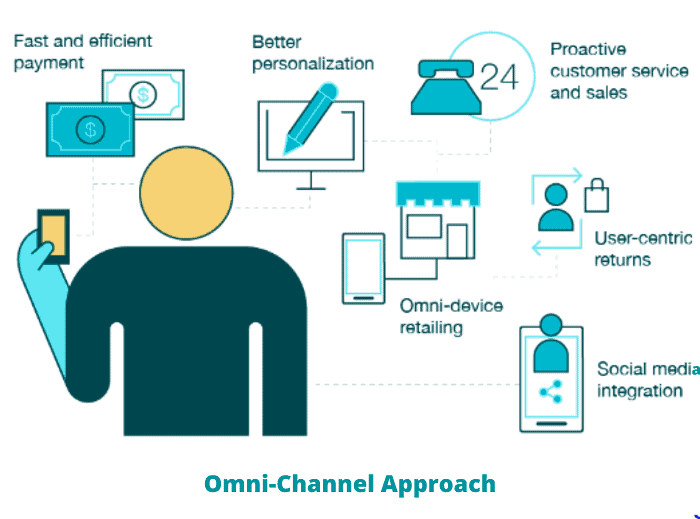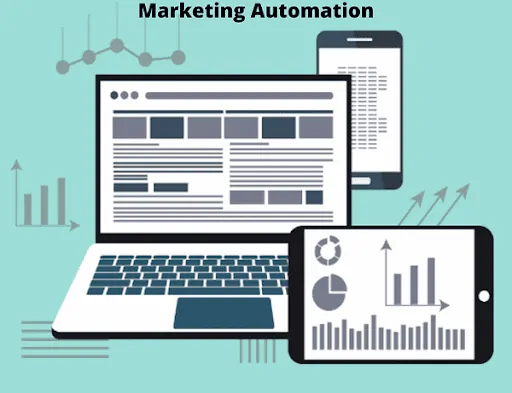Innovative business policies have emerged in the past few years and Omni-channel digital marketing means providing flawless customer experience across both online and offline marketing channels. These channels usually include social media, e-commerce websites, print ads, corporal interactions, etc.
Table of Contents
The foremost purpose is to guarantee 100% customer satisfaction across various channels related to the buyer’s journey. This blog post covers the top ten Omni-channel marketing strategies that help businesses to boost sales.
1. Work according to customer needs
Your entire marketing campaign should focus on customer requirements and what works finest for them. Clients should be able to get the required information about your product/services easily.
So proper collaboration within all departments of a company is a must and employees should be able to provide important insights to prevail over the problems in the Omni-channel approach.
2. Have a data-centric approach
Exploiting your data resourcefully is the essence of Omnichannel marketing. Enterprises should gather data from several sources like customer profiles, purchases, online search behaviour, demographics, etc.
Numerous companies use CRM tools to save their consumer data. It is necessary to know your target customers and the way they intermingle with your product. It is very important to enhance the brand that you ask for customer feedback during their buying journey.
3. Automated marketing tools
Automation of all processes including inventory management and email marketing eradicates human errors and increases work productivity. Following automated technologies are recommended to make your processes more efficient:
- A CRM (Customer relationship management) software
- A CMS (Content management system)
- A social media marketing and management tool like Hootsuite
Besides these, it is advantageous to include personalization which forms a sense of association with buyers across several channels.
4. Customer segmentation
Omni-channel digital marketing relies mainly on correct targeting and personalizing messages. Segmenting the customers into various groups and categories simplifies sending personalized messages. Such categories can be formed based on buyer profile (gender, age, location, etc), and the extent of customer interaction with various channels.
Use an automation tool to send appropriate messages to the customers at the right time and in the course of the correct channel. For instance, if a specific group shows a sturdy liking towards sales and discounts, prompt them each time about the relevant offer. Message targeting should be to get more conversions rather than simply drawing their interest. You can also use position-based mobile advertising to get the finest possible outcomes.
5. Website optimization for mobile devices
It is a familiar fact that around half of the users shop using their smartphones. Your website should be optimized for mobile devices or else these customers will soon abandon your site. This is an essential step to applying Omnichannel marketing in e-commerce.
6. Responsive web pages
Make responsive web pages so that customers can see your site content comfortably regardless of the screen size. Also, focus on the landing pages where your site visitors will fill in their personal information.
7. Customer care
Properly helping customers should not look simply like a sales pitch but it should satisfy the customer with the correct reply. There are occasions when improper targeting of sales message pop-ups can irritate a buyer creating an off-putting customer experience. Improper integration of systems with your Omni-channel approach can also be a catastrophe. So your automated systems and channels should provide help options that are handy to go through.
The key guidelines to improve customer care operations are-
- Reduce your social media response time: Every customer wants immediate solutions to his/her problems and most clients expect a quick resolution of their social media feedback. Set up a team to quickly handle social media issues.
- Provide live chat assistance: Usually, customers like to get their issues resolved through a live interactive chat. Utilize consistent live chat software and also integrate it with your social media platforms to tackle customer issues.
- FAQ list: Make a well-researched FAQ list that is easy to navigate and provides relevant answers.
- Email automation: Use email automation tactics and provide appropriate replies to customer queries. Email marketing tools can be used to track the deliverance and receiving of email interactions.
8. Follow customer journey across all channels
One of the most important parts of Omnichannel marketing is to have a proper understanding of the pain points of consumers and their behaviour. It is also possible to track every single tap and click on an app.
Since you present numerous channels for buyers to connect with your product, it is vital to be quick to respond to all these channels. With proper integration of all the platforms, your customers will get reliable services across each.
9. Establish trust
Steadiness is significant in Omnichannel marketing. You have to provide excellent customer service to enhance user experience to a stage where they trust and automatically associate with a brand name.
10. Update customer experience with time
Analyze and modify your Omni-channel marketing policy over time. For this, you have to analyze the data collected through various channels and conclude to make your marketing campaigns more effective. This also keeps updating your customer’s experience.
Conclusion:
The major benefits of Omni-channel marketing include better customer experience, less production and warehousing expenses along with enhanced retargeting. Implement these above-mentioned Omni-channel marketing strategies to improve your brand name and boost sales.







